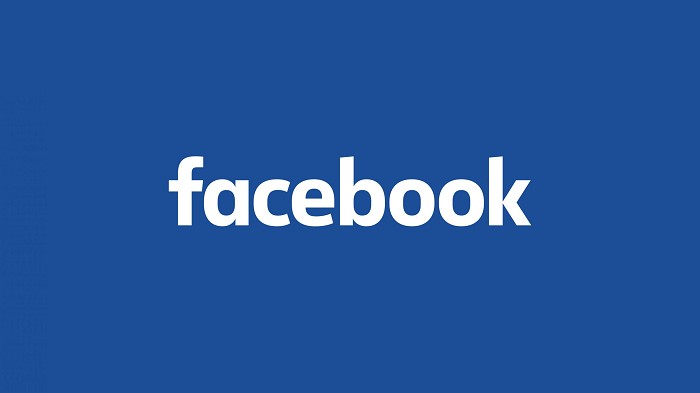Social Media
Reports Show that Facebook Usage is Up, as Meta Continues to Develop its AI Targeting Models
- By Brett Belau
29 Jan

While Facebook is no longer the cool app, especially among younger audiences, it remains a key platform for many users, and its capacity to keep people updated on important updates from friends and family is likely to ensure that many continue to return to the app every day for some time yet.
But more than that, Facebook usage is actually increasing, according to internal insights viewed by The Wall Street Journal, which also include some interesting notes on overall Facebook and Instagram usage trends.
As per WSJ:
“Data gathered in the middle of the fourth quarter showed that time spent on [Facebook] was up worldwide, including in developed markets, over the course of a year.”
Which seems unusual, given the subsequent rise of TikTok, and short form video more generally. But actually, Facebook has been able to successfully use the short-form video trend to drive more usage – despite much criticism of the platform’s copycat Reels feature.
Indeed, Reels consumption is up 20%, and has become a key element in Meta’s resurgence.
How is it finding success? Increased investment in AI, which has driven big improvements in the relevance models that fuel both Reels and its ads, which are also now driving better response.
On Reels, Meta’s systems are getting much better at showing users the Reels content that they’re most likely to be interested in. You’ve likely noticed this yourself – what was initially a mess of random clips inserted into your Facebook feed has now become more focused, and you’re probably finding yourself expanding a Reels clip every now and then, just to see what it’s about.
Reels has actually been too successful:
“Because ads in Reels videos don’t currently sell for as much as those sold against regular posts and stories, Reels’ growing share of content consumption was denting ad revenue. To protect the company’s earnings, the company cut back on promoting Reels, which lowered watch time by 12%.”
So again, while Meta has been criticized for stealing TikTok’s format, it’s once again shown, just as it did with Stories, that this is a viable and beneficial pathway to keeping users engaged in its apps.
You might not like it, but replication works in this respect.
But for marketers, it’s likely the development of Meta’s AI targeting tools for ads that’s of most interest.
Over time, many performance advertisers have been increasingly recommending that marketers trust Meta’s AI targeting, with newer offerings like Advantage+ driving strong results, with far less manual targeting effort.
Advantage+ puts almost total trust in Meta’s AI targeting systems. You can choose a couple of targeting options for your campaigns, but for the most part, the process is designed to limit manual impact, in order to let Meta’s systems determine the right audience for your ads.
Which may feel like you’re ceding too much control, but according to Meta, its continued AI investment is now driving better results.
“Heavy investment in artificial intelligence tools has enabled the company to improve ad-targeting systems to make better predictions based on less data, according to the interviews and documents […] That, along with shifting to forms of advertising less dependent on harvesting user data from off its platforms, are key to the company’s plans to overcome an Apple privacy change that restricted Meta’s capacity to gather information about what its users do outside its platforms’ walls, the documents show.”
That’s likely worth considering in your process, putting more trust in Meta’s targeting systems to drive better results. At the least, it may be worth experimenting with Meta’s evolving AI for ad targeting.
It’s not all good news. Meta also notes that while time spent in its apps is on the rise, creation and engagement is declining, with fewer people posting to both Facebook and Instagram than they have in the past.
That’s particularly true among younger audiences, while notably, usage of Instagram Stories is also in decline, down 10% on previous levels.
So while Meta is driving more engagement from Reels, which draws on content from across the app, as opposed to the people and Pages you follow, that’s also led to a decline in user posting.
Is that a bad thing? I mean, logically, engagement is important in keeping people interested in the app, and Meta also relies on those signals to help refine its ad targeting. So it does need users to be sharing their own content too, but if it can get more people spending more time in its apps, that will help it maintain advertiser interest.
In essence, despite all of the reports of Facebook’s demise, it remains a key connective platform, in various ways, while Meta’s improving ad targeting systems are also helping to drive better results, which will keep it as a staple for brands moving forward.
If you were thinking of diversifying your social media marketing spend this year, maybe don’t reduce Facebook investment just yet.
Source: www.socialmediatoday.com, originally published on 2023-01-27 13:45:10
Connect with B2 Web Studios
Get B2 news, tips and the latest trends on web, mobile and digital marketing
- Appleton/Green Bay (HQ): (920) 358-0305
- Las Vegas, NV (Satellite): (702) 659-7809
- Email Us: [email protected]

© Copyright 2002 – 2022 B2 Web Studios, a division of B2 Computing LLC. All rights reserved. All logos trademarks of their respective owners. Privacy Policy

![How to Successfully Use Social Media: A Small Business Guide for Beginners [Infographic]](https://b2webstudios.com/storage/2023/02/How-to-Successfully-Use-Social-Media-A-Small-Business-Guide-85x70.jpg)



![How to Successfully Use Social Media: A Small Business Guide for Beginners [Infographic]](https://b2webstudios.com/storage/2023/02/How-to-Successfully-Use-Social-Media-A-Small-Business-Guide-300x169.jpg)


Recent Comments